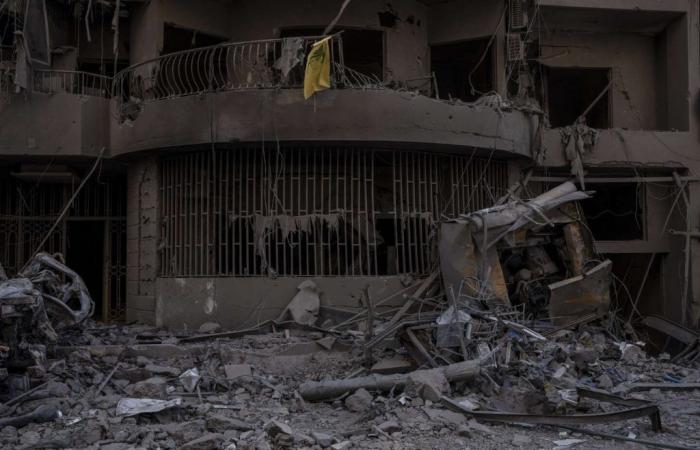
SAre we moving blindly towards a regional war in the Middle East? Getting this gear in motion depends on two cogs: Israel and Iran.
In one year, Hezbollah’s military capabilities have collapsed, without Israel deploying a single soldier on the ground. Its central management is decapitated, a large part of its middle managers have been killed or have been in hospital since the explosion of the pagers. Finally, the rumor of infiltration by the Mossad complicates the organization of a response.
With the death of Hassan Nasrallah, leader of Hezbollah, Benjamin Netanyahu regains control and sweeps away Iran’s entire regional strategy. Since 2006, Hezbollah had worked to establish a form of conventional deterrence against Israel, the only nuclear power in the region. The Shiite movement appeared as a form of indirect protection of the Iranian nuclear program, Tehran fearing that, as in 1981 in Iraq and in 2007 in Syria, the Jewish state would bomb its installations.
Also read the analysis | Article reserved for our subscribers With the elimination of Hassan Nasrallah, the Israeli army washes away the affront that Hezbollah inflicted on it in 2006
Add to your selections
The day after October 7, 2023, Hezbollah joined the conflict in the name of “front of support” by launching rockets into northern Israel, forcing more than 80,000 Israelis from their homes and keeping two Israeli army brigades outside Gaza. In doing so, he squandered part of his stock, the tactical interest of which lay in its ability to saturate the Israeli Iron Dome. Israel has, in eleven months, carried out more than 4,500 airstrikes in this area, forcing nearly 100,000 Lebanese to evacuate their homes. Hezbollah also threatened to target critical infrastructure, such as petrochemical plants in Haifa, and carried out a strike against Mossad HQ in Tel Aviv. And, like Hamas, it has a network of tunnels on the northern border. The Radwan unit, whose commander was killed on September 20, is entirely dedicated to incursions into the territory of the Jewish state.
Provocative reading
For Yoav Gallant, Israeli Minister of Defense, the dilemma was delicate: with an army of 170,000 soldiers, to which are added 360,000 reservists, how to simultaneously manage the dismantling of Hamas’ military capabilities, maintain an occupation in the West Bank, counter the threats from Syria and Yemen, while pushing back Hezbollah? A land offensive on Lebanese territory has long been considered too costly in terms of men and equipment, especially after months of attrition in Gaza. The economic cost of mobilizing Israeli reservists weighs in the balance, while the Moody’s agency has further downgraded Israel’s rating.
You have 62.46% of this article left to read. The rest is reserved for subscribers.





